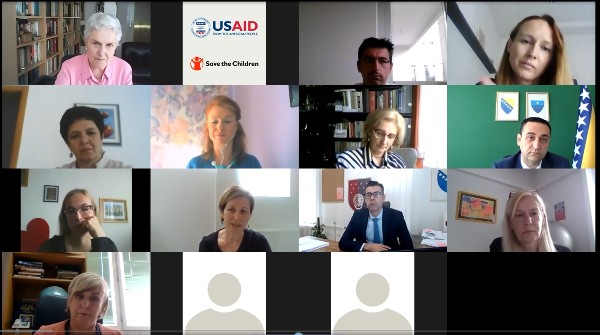 North West Balkans
North West Balkans
Languages
TABLA Project – Education for 21st Century

In the third week of June, the first meeting of the Working Group for Initial Education, which operates under the General Education Project - TABLA, was held. The Project is supported by the United States Agency for International Development (USAID) and implemented by Save the Children.
This meeting is the first in a series of meetings aimed at problematizing and presenting the goals of the Project Unit 1 of the TABLA project, i.e., preparation of curriculum harmonization, development of new modular study programs and professional development of university teachers - as a prerequisite for step forward in educational systems in Bosnia and Herzegovina.
"The project aims to offer a document through this Working Group of relevant actors that should harmonize the curricula of teacher training faculties with a common core of curricula and to introduce important concepts and competencies that will be important for our students, for future generations, regarding science, technology, engineering, art and mathematics (STEAM) as well as critical thinking, creativity, communication and collaboration,“ said the TABLA Project Chief of Party, Fatima Smajlović.
This project will improve student learning outcomes, equip teachers with knowledge and skills for a more innovative and progressive way of working, and build capacity to introduce modern concepts such as STEAM, knowledge-based economy, 4K student competencies (Critical thinking, Creativity, Communication, Collaboration), learning outcomes and pedagogical competencies (PPDM - pedagogy, psychology, didactics and methodology).
The meeting of the Working Group, which was held virtually, was attended by representatives of the Ministry of Education, Science and Youth of Sarajevo Canton and the Ministry of Education, Science, Culture and Sports of Herzegovina-Neretva Canton, and a group of experts from the partner Foundation Education in Action.
As part of the expert presentations on the first day of the meeting, in-depth analyzes of the state of PPDM subjects in the curricula of five universities from the Sarajevo Canton, Herzegovina-Neretva Canton and Republika Srpska were presented. On the second day, ideas and directions of development of education systems in BiH were presented in the context of Common Core Curricula based on learning outcomes, STEAM concept and knowledge-based economy, and 21st century student competencies were discussed.
The expert group of the project on behalf of the partner Foundation Education in Action (FEiA) is led by Prof.PhD. Lamija Tanović. "This project is a long-awaited opportunity to make changes in the education systems of Bosnia and Herzegovina, which will result in an educational concept adapted to the times in which we live and as experts on behalf of FEiA we have great pleasure to contribute to this path.“